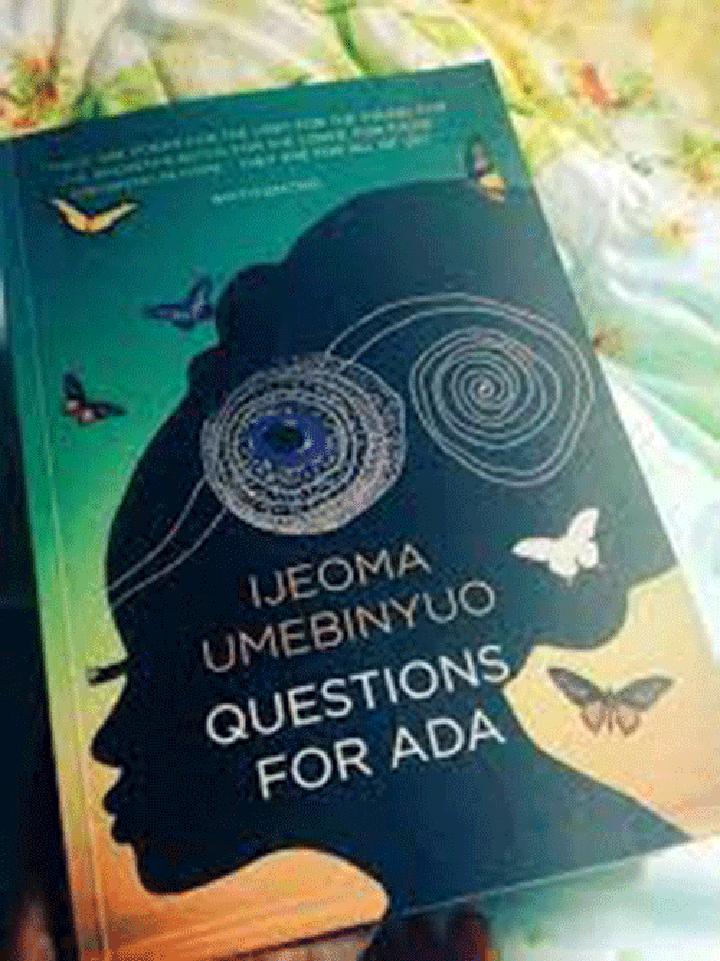Africa-Press – Namibia. Have you ever felt alone and thinking you are the only one going through the shady parts of life? Questions for Ada relinquishes such thoughts. This anthology is themed on life experiences and all the trials women endure in life.
It is also a book that embodies the pain, passion and power of love from within our souls. This book covers aspects of love, marriage, relationships and the everyday changes of culture and tradition.
Ijeoma Umebinyuo is a Nigerian poet, who started writing at the age of seven and was named the best modern poet in Sub-Saharan Africa. Not everyone’s life is as dramatic as Ijeoma’s poems but everyone had moments of wanting to be understood and have someone with a life that resonates so much with theirs.
The beginning of the book is what captured most of my attention. It starts off with how women are broken, and the tenacity of their pain. “I already had baby names” is quoted from one of the poems, Conversations with broken girls, which speaks about a broken-hearted woman by a man she so loved and whom she had imagined a future with him.
One thing about this poem is that it opened my mind on expectations we tend to have and intuitive imaginations we build for ourselves, based on other people, which surely lures disappointments.
I love Ijeoma’s rigorous mind of how she has written her book. Her ideas and thoughts are catchy, unanticipated – and yet, they reflect so much with descendants of our lives. It is one of those books you read and you keep nodding your head in agreement after every sentence.
It is funny how getting this book in my hands was because of a one page. I read it, and my thoughts were to discover more of it, and just sit and reminisce in her words, contending my life.
Every single part of her book feels so real. It is not some fiction that would keep you wondering whether it exists in human capacity because any person can collect a page or two they would so much resonate with. I like how every of her poems gives off imageries, which makes me feel closer to home.
One thing I can say is every scene is written from a point of truth. Part of the poems are written in past tense, while others in present tense, considering that she probably wrote them at the time she was going through some experiences.
This book partially made me sad. It is sad to notice how women suffer most and how they are blamed for every uncontrolled situation happening around them and society to perceive them a certain way to be accepted. It depicts how women have to be butchered and exposed to the difficulties and pain of life before they could actually enjoy life itself.
It is sad to note that at most parts, a woman finds closure and safety in areas outside her society – areas that know nothing about her – that does not judge her for how weird and broken she may be, and let her be who she wants to be without feeling insecure.
I did not like how most of the poems did not have a tittle to it. It kept me questioning, especially with her metaphors in it. I also do not like how disorganised the book is.
Yes, literature is about art and creativity. But personally, I do not like how its pages are presented to the audience. Another thing that I did not like is how men tend to be blamed for most situations women go through.
We live in societies where toxic masculinity is upraised, and that shutters men’s emotions, making them invulnerable. Woman should also be able to take accountability for certain things happening to them.
One thing I can say is, in as much as it exposes women, even parts where they would not want men to know about, it also reflects personal identification. It makes a reader think about themselves and notice situations they are in.
Hence, I would recommend people who are going through emotional turmoil like depression or anxiety to definitely read this book, so that they do not feel like they are going through it alone.
For those who have read Upile Chisala’s poetry, Soft Magic, and Nectar, Questions by Ada is another one you would want to add to your collection. With such a reclusive creative, out of ten, I would rate this book a nine.
For More News And Analysis About Namibia Follow Africa-Press






